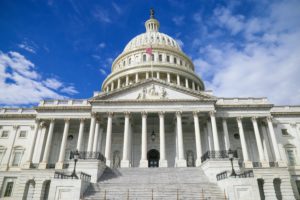
Every election cycle from the president to local city councils potential political leaders make promises that they can’t keep, especially when it comes to the economy. This might sound pessimistic but when was the last time you elected someone who then went on to create exactly the economy that helped you to succeed? Ok, on a national level there are policies, tax reforms, trade agreements, etc. that can help out specific industries, but when it comes to a local economy, throwing money at a problem is not the solution. Why? Because our nation was founded on a very specific phrase that is more applicable than ever: We the People.
I will just say it plainly: politicians can’t fix your economy because it is not their job and they are hamstrung. Only the collective community can change your economy. We’ll look at collective communities in a future post, but for now, we will focus on politicians.
There is a multitude of reasons that politicians can’t fix your economy but here are four to think about.
Politicians are hamstrung by election cycles
There was a time where leadership in our country was tasked with doing what is right and best for “we the people.” Sadly recent changes to society, social media, news cycles, etc. have created a situation whereby all politics revolve around not leading but getting re-elected. The path to re-election is to keep the majority of the people from being angry with you. Leaders who keep the majority of people from being angry are ineffective because true leadership requires decisions that can at times be unpopular or even bring about short-term difficulties for long-term gain. Until the majority of politicians are focused on doing what is best over what is popular, and thus being re-elected, politicians cannot fix your economy.
Politicians are ill-equipped
Think about the people who are leading every influential group in an economy from your homeowner’s association all the way up to your state government. Of those people you know well or at least know their careers well, how many of them have spent any time inspiring people toward a common goal that requires work on everyone’s part. How many of them have experience with economic development beyond theory? This is not to say that politicians don’t have good ideas, nor that they don’t have the skills, but when it comes to inspiring people to be the best versions of themselves, create new companies, create real value in the world, or become a genuine community that builds new things together, most politicians are simply ill-equipped to do that kind of work. The argument might even be made that this is not the work they should be doing. Either way, most politicians are ill-equipped to move the needle on an entire economy.
Politicians must deal with factions
Sadly we live in a political climate where galvanizing the base and demonizing the opposition has become the modus operandi of politics. Factions keep us from seeing progress in any timely manner because the “other side” is plotting the demise of their political enemy. Even politicians who are well-intentioned and trying to effect positive change are often blocked by the opposite “team” in order to gain more seats, more power, and more money. In the end “we the people” suffer.
Politicians can create programs, but can’t force participation
We have all heard about grandiose programs that are going to retrain laid-off workers or re-skill workers in a dying industry. So why aren’t all the miners in Virginia cranking out the newest iPhone apps and creating the next Facebook or Instagram? Because we have believed that when it comes to economics and programs, that “If we build it they will come.” But sadly, they never do. We build gorgeous Innovation Centers, create programs for re-skilling and workforce development, but they largely go unused by the public. Politicians can create programs but they cannot force participation so many times millions of dollars go unused, or even wasted on fruitless buildings, programs, and promises.
So where does this leave us? The only way to change your specific economy is to gather what could be called a “coalition of the willing” put them to work together, inspire a large number of members in a community and start with a “ground-up approach” to economic development.
Easier said than done, but it can be done. It’s currently being done in a few various communities. But if the work of economic development, inspiring people, developing a strategic plan, AND executing that plan is left to politicians we will never get the kind of economic lift that the average citizen needs in order to get ahead and create new companies and products of real value.
